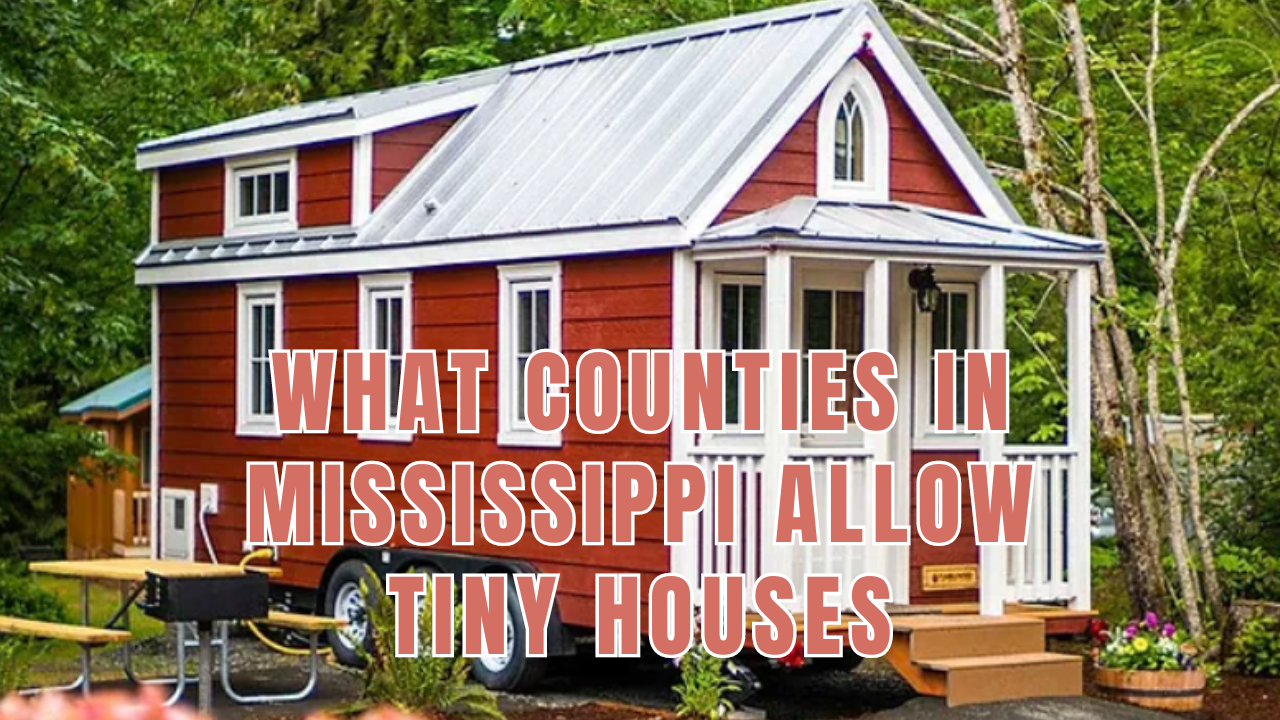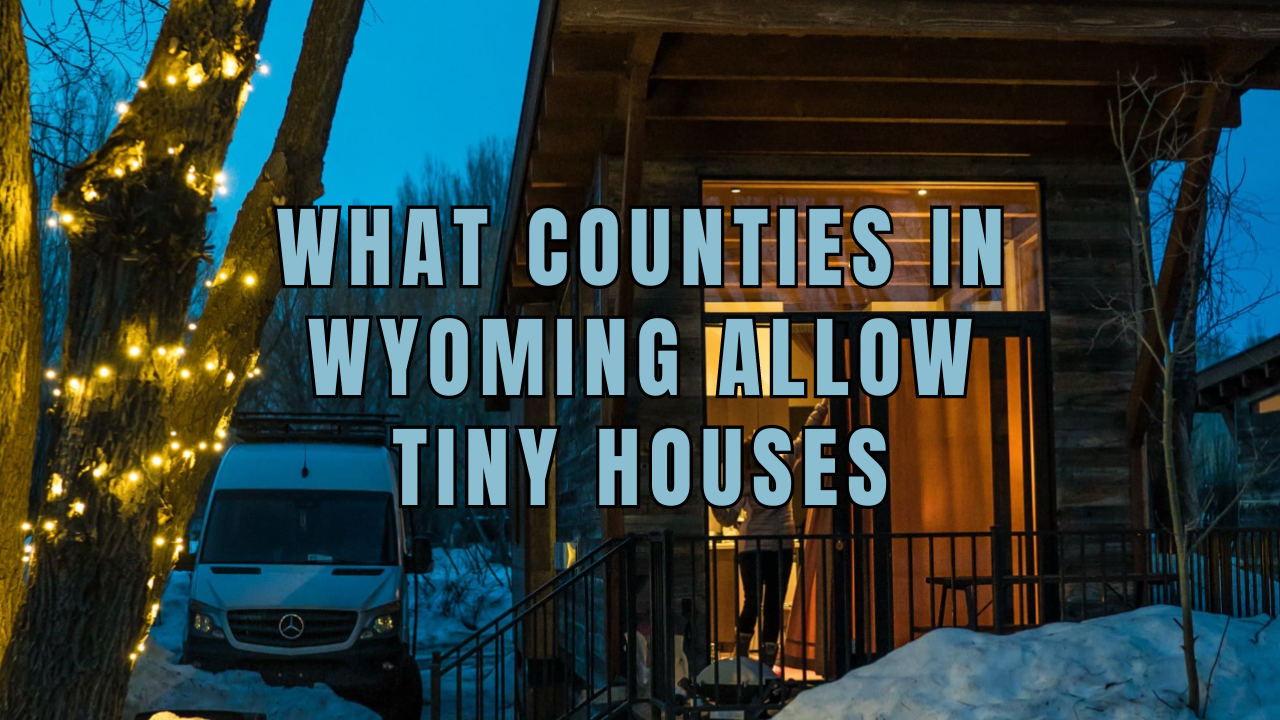Tiny homes are a growing trend among consumers who wish to live more simply, inexpensively, and sustainably. Some areas have strict laws and ordinances restricting the location and construction of tiny homes.
This post will discuss affordable tiny homes for sale, which counties in Mississippi permit tiny homes, and the aspects you should consider before constructing or purchasing one there.
Tiny House Prices in Mississippi
You undoubtedly want to know the pricing possibilities that will match your dream tiny home and your budget after you’ve started your tiny house adventure.
Fantastic news! We give a solution to fit every lifestyle and budget, enabling you to start your home construction task. Explore the Mississippi tiny house listings.
What Counties in Mississippi Allow Tiny Houses?
There is no standard construction code for small houses in Mississippi, and the zoning regulations of many counties need to include minimum dwelling size limits. In certain places, builders can build tiny houses without obtaining permission or passing an inspection as there are no precise construction rules. It’s crucial to remember that although some counties welcome tiny dwellings, others can have limitations or need zoning authority permission.
Jackson County
Local zoning regulations in Jackson County for tiny houses are governed by specific laws to ensure compliance with safety and building codes.
These regulations dictate the size, placement, and usage of tiny houses within the county. Individuals interested in building or purchasing a tiny house must familiarize themselves with these laws to avoid potential legal issues. By following these regulations, residents can enjoy the benefits of living in a tiny house while remaining in compliance with local zoning ordinances.
DeSoto County
In DeSoto County, local zoning regulations dictate the minimum square footage for residential homes, making it challenging for tiny house enthusiasts to find a suitable location. However, there has been a recent push for more flexible zoning regulations to accommodate tiny house living. As the tiny house movement continues to grow in popularity, these regulations will likely be revisited to allow for more diversity in housing options.
Mississippi has many cities that are very welcoming to the tiny home movement:
- Hattiesburg
- Vicksburg
- Biloxi
- Meridian
- Southaven
- Gulfport
Tiny House Regulations And Rules In Mississippi
In Mississippi, regulations and rules for tiny houses vary by city and county. Some areas classify tiny houses as RVs, allowing them to park on private property. Other areas may require tiny houses to meet specific building codes and zoning requirements. Research the regulations in your location before building or parking a tiny house.
Permanent Structure Rules
As permanent construction, tiny houses are not subject to any special building rules in Mississippi. That means builders frequently put up tiny residences without getting approvals or doing inspections.
It’s crucial to remember that local counties could have their own rules even if the state doesn’t have any formal construction laws for tiny dwellings. For example, the International Residential Code (IRC) from 2012 is still in effect in several counties in Mississippi. People must thoroughly examine the zoning laws in the county they intend to construct their homes.
Temporary Structure Rules
Mobile houses, often known as recreational vehicles (RVs), are regarded as temporary constructions. While municipal rules may differ, no state legislation in Mississippi addresses tiny dwellings on wheels. It’s crucial to inquire with local officials to find out the precise rules for parking and tiny homes living in some locations.
Transitional Structure Rules
Mississippi’s state regulations don’t address transitional structures, including those utilized as auxiliary dwelling units (ADUs) or emergency housing. Nonetheless, small houses were used as emergency shelters during disasters like Hurricane Katrina, suggesting that there is some acceptability for their usage as transitory structures.
The local county authorities determine the legality of construction. It means that they would be the ones to decide whether or not the construction is allowed.
In Mississippi, Where Can I Build A Tiny House?
Your small house’s location is fundamental. Choose a licensed tiny house builder to help you with the construction, handle any paperwork, and ensure your home complies with building codes.
Making a tiny house doesn’t have to be challenging, even if it requires a lot of labor if done properly. Tiny houses are commonly placed in the following areas:
- RV parks
- National Parks and campgrounds
- Tiny house communities
- Private properties
Tiny House Communities in Mississippi
More communities are opening up to cater to tiny house owners and enthusiasts. Apart from fostering a feeling of inclusion and common values among those with similar beliefs, these communities provide an exceptional lifestyle.
Longleaf Piney Resort
A tiny house vacation paradise with seven distinct tiny houses for rent at Longleaf Piney Resort. The 44-mile Longleaf Trace path, some of Mississippi’s better restaurants and shops, are close to the small home village, allowing you to experience the perfect getaway.
Every Longleaf rental includes a Longleaf Trace, a coffee machine, a dishwashing sink, hammocks, bed sheets, towels, and a fire pit. Additionally, the property has bikes and other camping gear for hire.
Tiny House Builders Near Me
You no longer need to look for nearby builders to find your ideal house because Great Lakes Tiny Homes have a large selection of tiny house designs that can be delivered anywhere in the country.
The RV Industry Association (RVIA) has approved Great Lakes Tiny Homes as a builder. It is to uphold the strictest safety, regulatory, and tiny house construction requirements with the highest production standards.
Do I Need a Certified Builder?
You most definitely do. A do-it-yourself project could be something you try, but there are additional risks and unknown outcomes.
Working with a builder certified by the RVIA, such as Great Lakes Tiny Homes, ensures that the tiny house you own is following regulations and guidelines.
Additionally, it gives peace of mind by ensuring that the materials in your house are sturdy, safe, and of the best standard.
Likewise, working with a certified builder improves your access to finance and insurance. Respecting the RVIA rules ensures that your tiny house is safe and livable.
FAQs
Can You Make a Tiny House in Mississippi Your Main Residence?
It is acceptable to live in a tiny house permanently in Mississippi.
It is crucial to keep in mind that the laws and regulations may vary depending on the location you are in. You must consult with the local governments and zoning authorities to see whether your tiny house complies with laws and regulations, including inspection requirements.
In Mississippi, you may reap the benefits of a more sustainable and low-key lifestyle by researching and collaborating with certified builders.
In Mississippi, How Tiny Can a Home Get?
No statewide regulations exist in Mississippi dictating minimum dwelling size. However, most tiny houses manufactured in the state range from 100 to 900 square feet.
Does My Mississippi Tiny Home Require Me to Pay Property Taxes?
The type of tiny home, its intended purpose, and whether or not it is mobile or on a foundation are all significant factors to consider about Mississippi property taxes. The property tax assessment will be based on the tiny house’s dimensions and the worth of the land.
If your tiny home qualifies as an RV and counts as mobile, it may not be subject to property taxes like a conventional home. Nevertheless, if you want to park your RV at an RV park, you may have to pay additional fees or taxes, such as those related to registration.
Conclusion
In conclusion, since every county in Mississippi has its own set of zoning and construction rules that may or may not allow tiny dwellings, the state provides a great deal of diversity and freedom in this regard. While a few countries are more traditional and restricted, others are friendlier and supportive of the tiny home movement.





